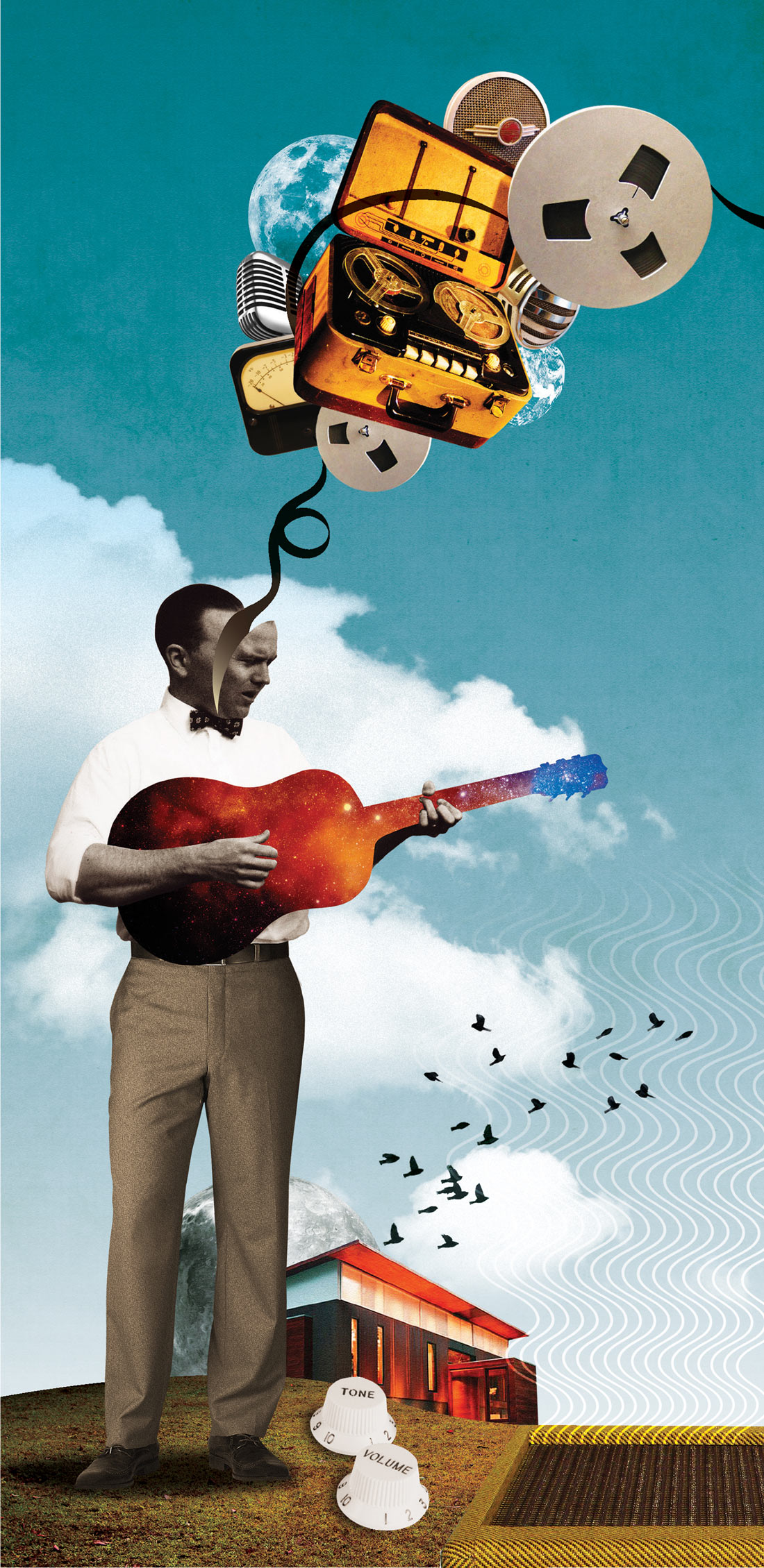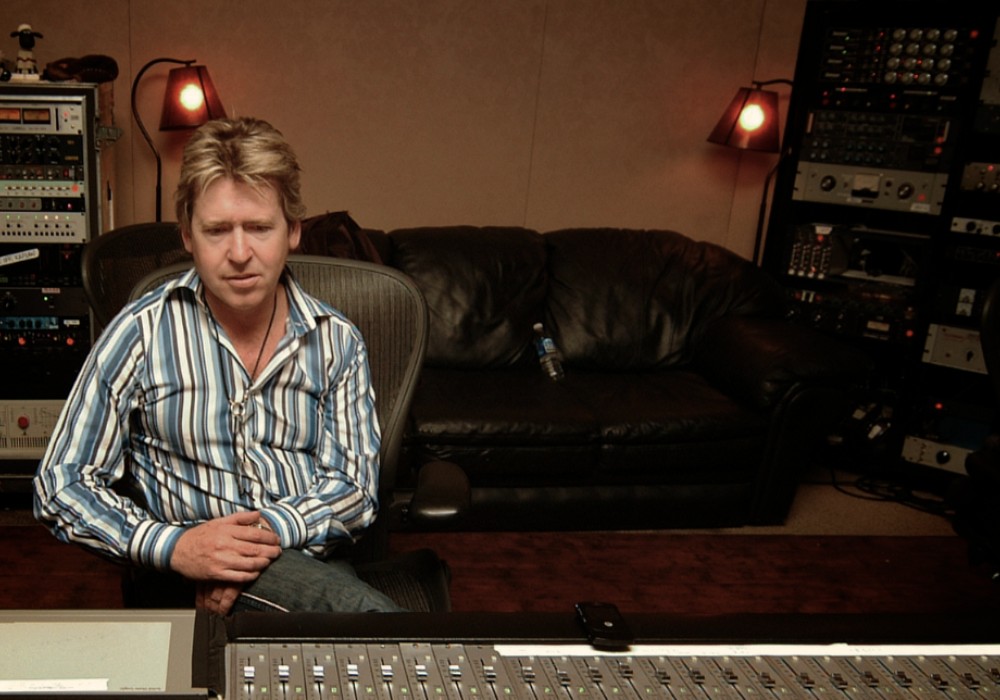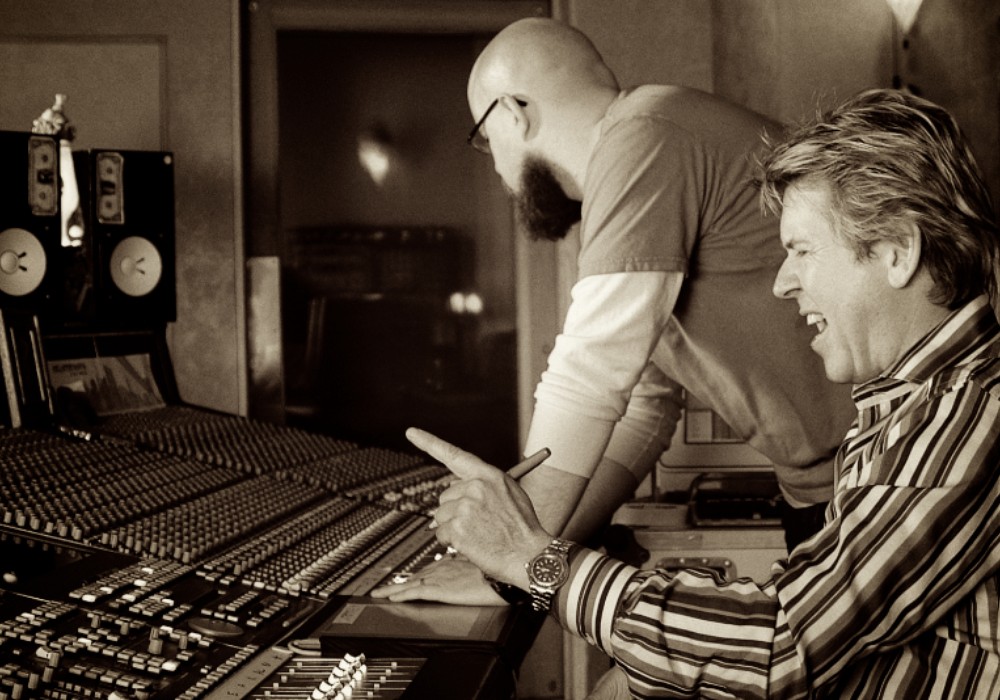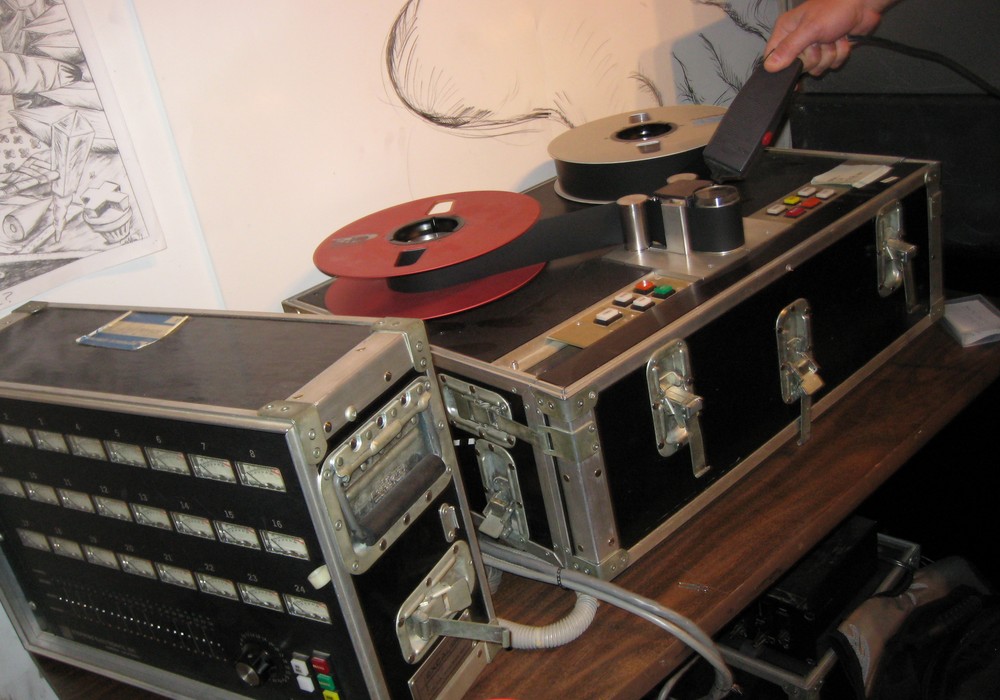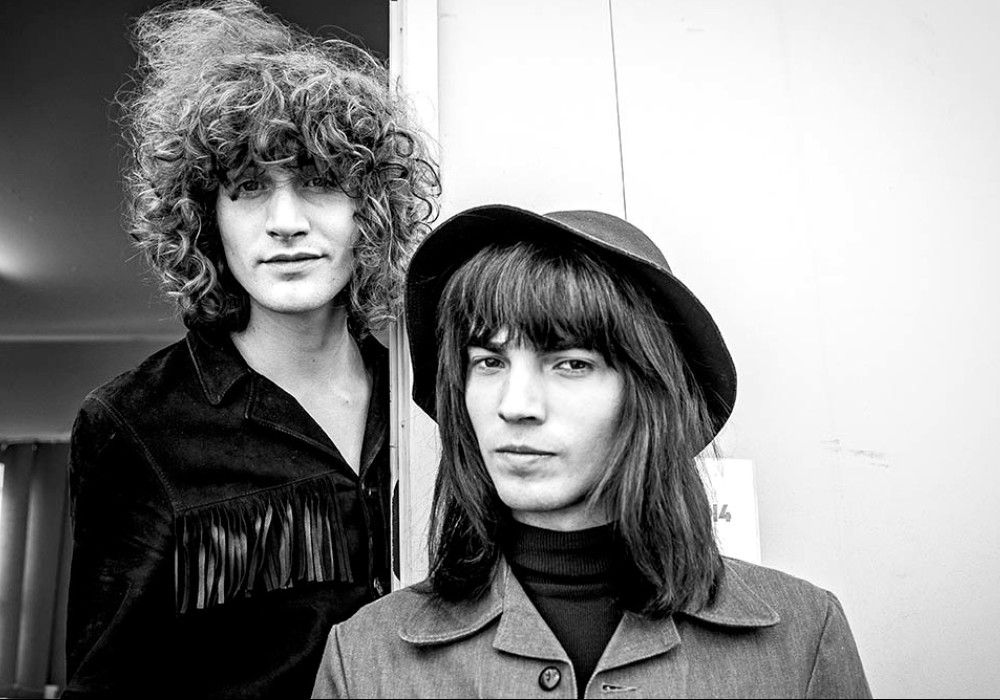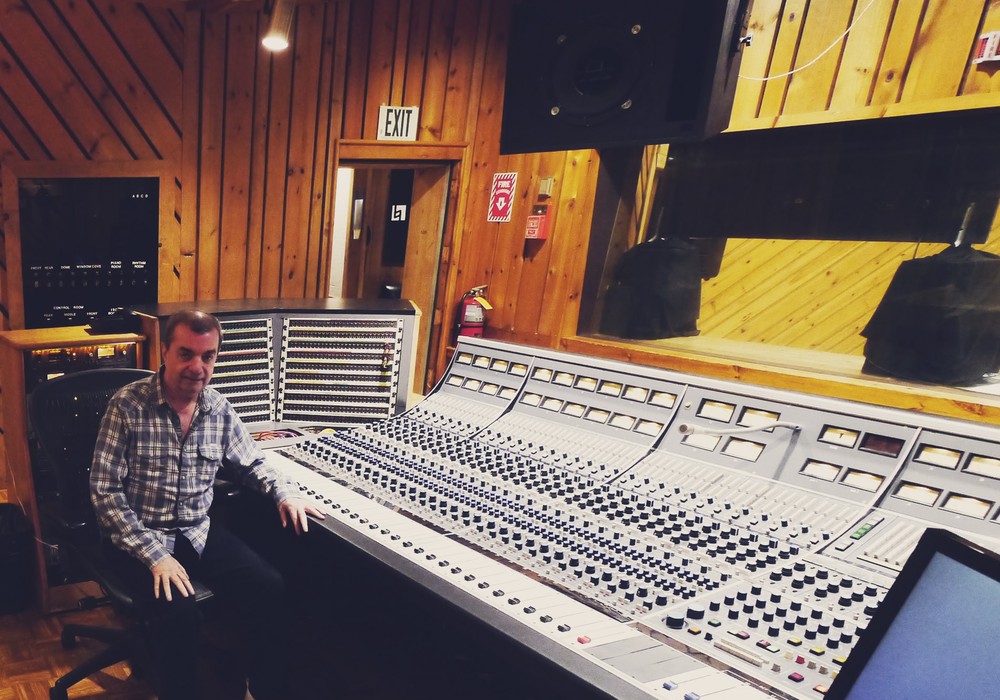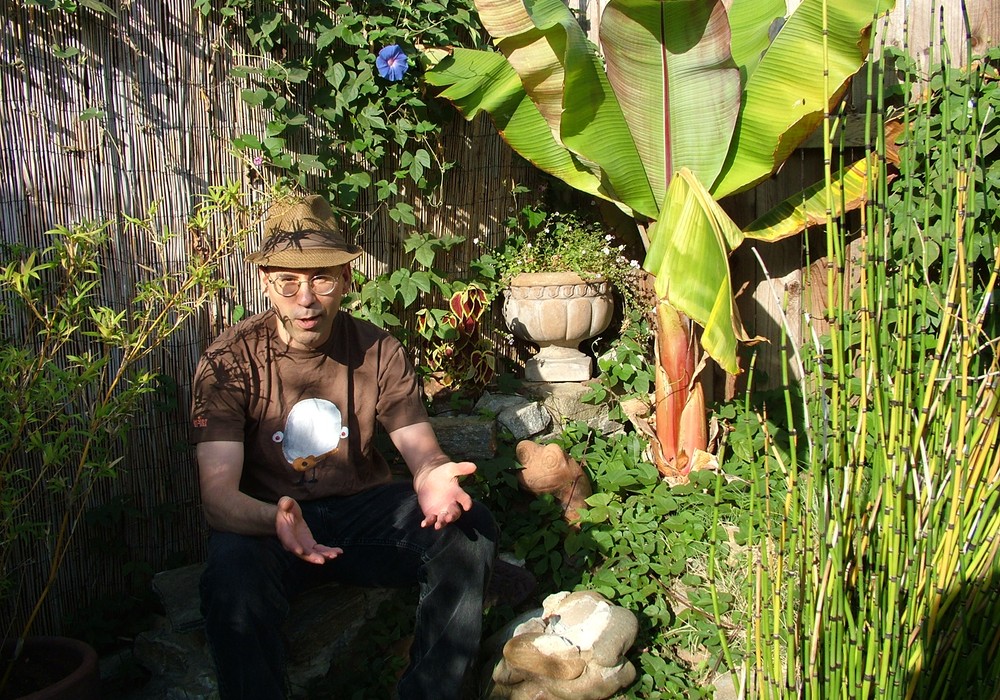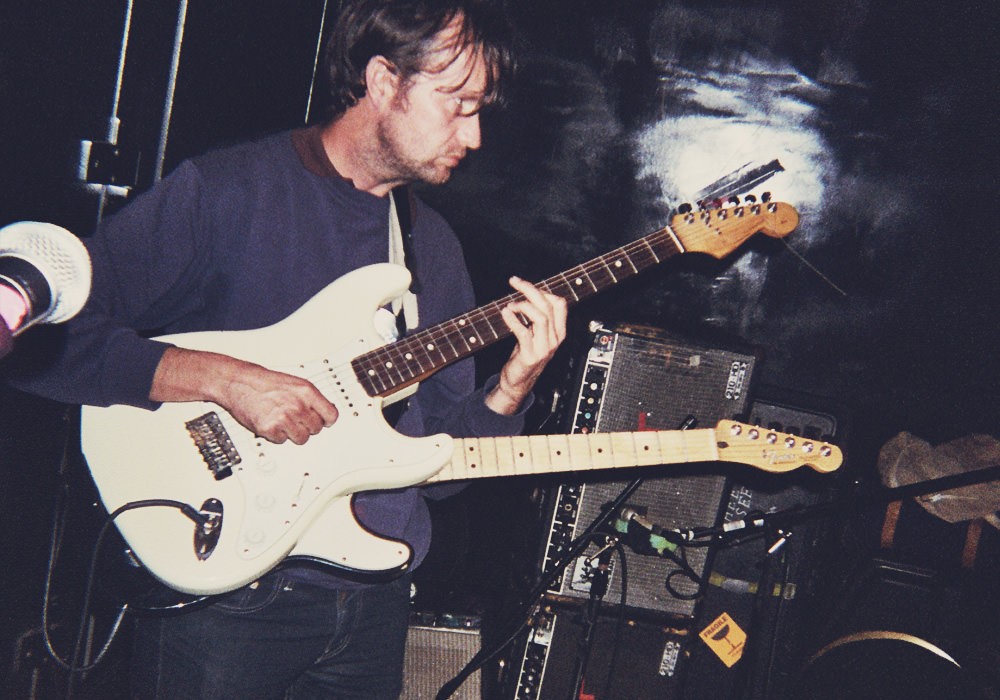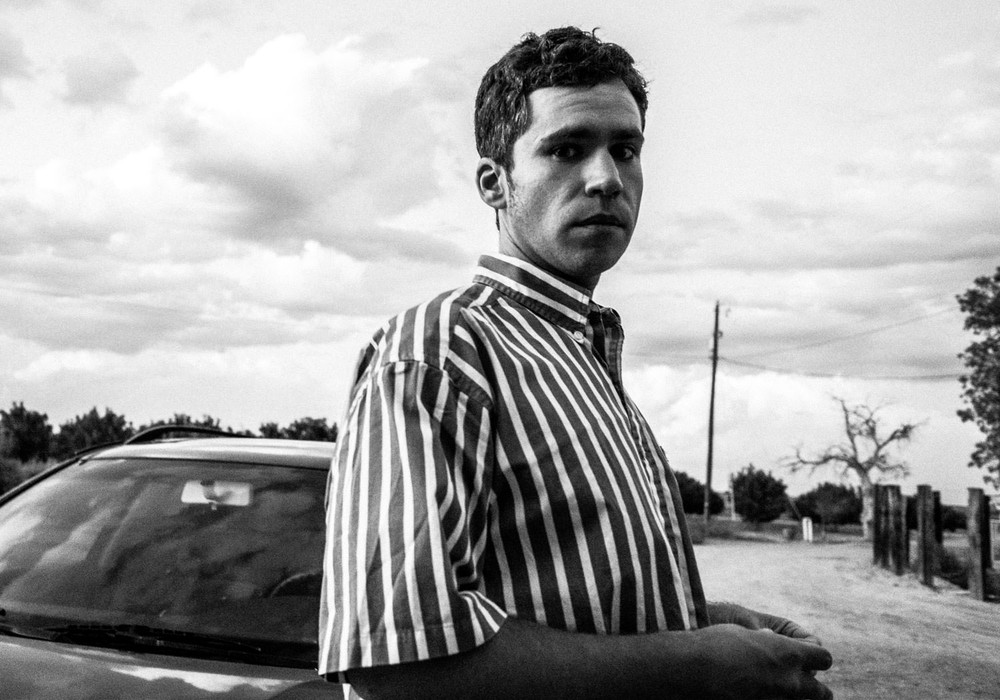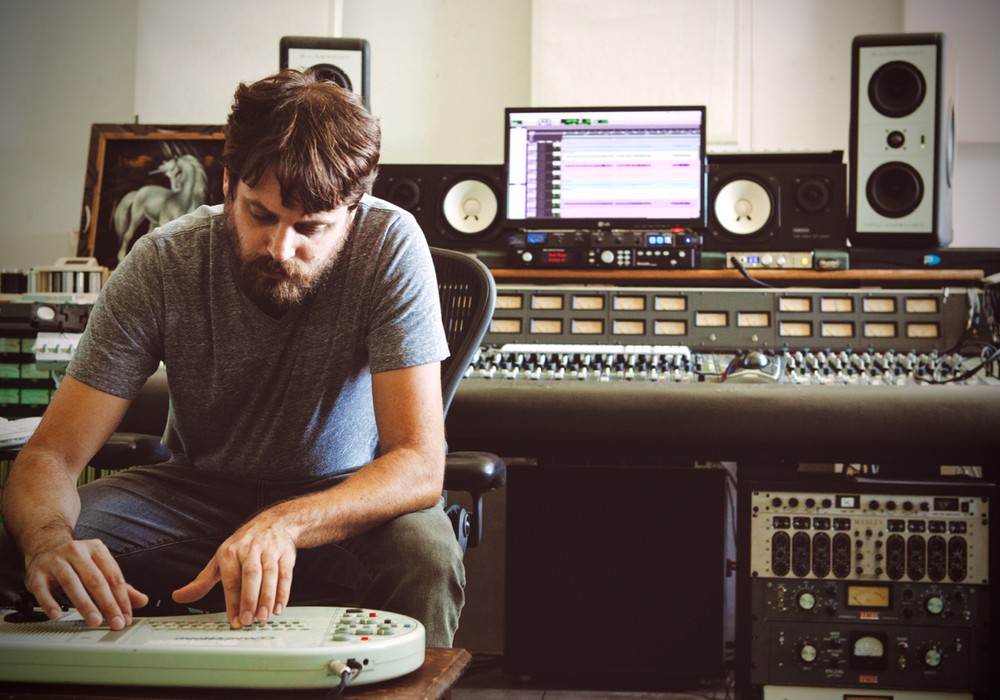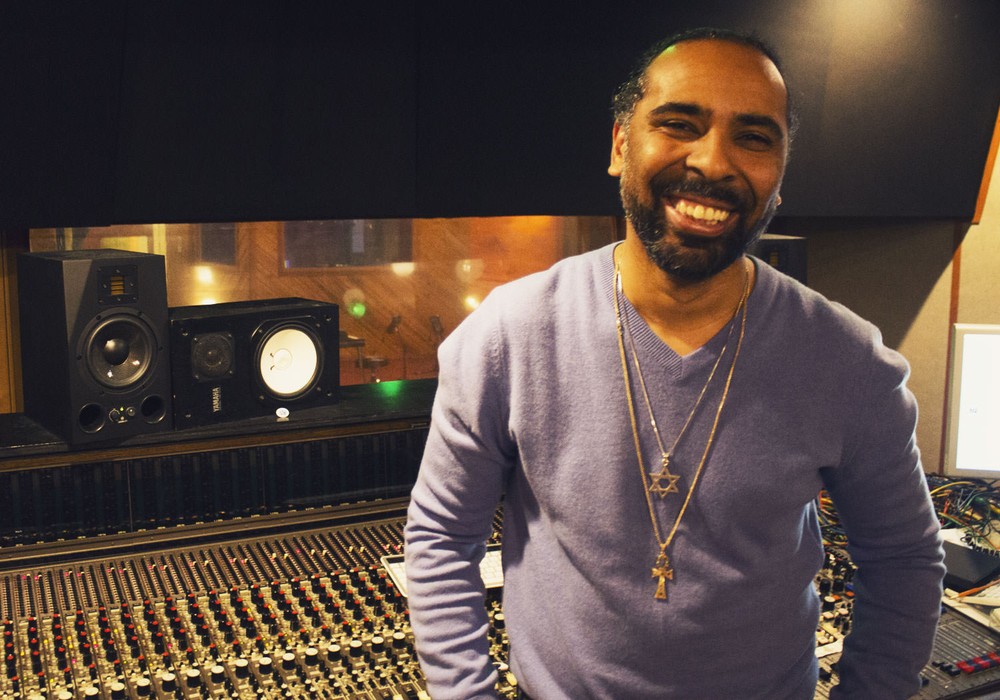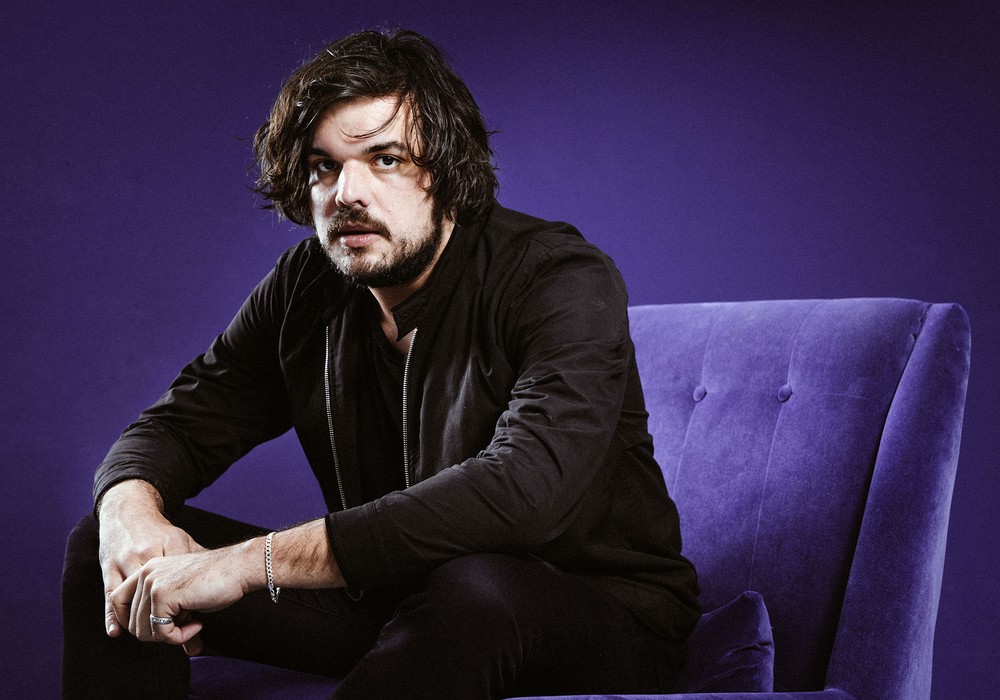British superproducer, Steve Lillywhite, CBE, has spent more than three decades helming storied recordings by artists like U2, Peter Gabriel and the Dave Matthews Band. Fresh from his latest work producing Matthews, The Killers, and the "Music From" album of Broadway's Spider-Man: Turn Off The Dark, Lillywhite sat down with me in New York City to talk about his fabled career atop the pop charts.
For a guy who has produced some of the most legendary albums and bands of the last 30 plus years, you still seem as energized as ever. What still excites you about this job?
Well, there's no school or set of rules about how a person produces records, but I know for me, part of my success has been my enthusiasm and my ability to help creative people get what they want. If I'm not enthusiastic I'm not such a good producer. So that's why I still have that enthusiasm, because it's part of my way of producing. For me it's all about being positive.
A common denominator among successful producers and engineers seems to be that they found their way into the business almost by sheer hunger and adrenaline. How did you get your start making records?
It's a Catch 22 situation, especially as a producer. You only get the work if you have a "hit." But how do you have a hit if you don't have the work?! In my case, it was punk rock that got me in the door. There was a sort of wave that hit England in the late '70s that was full of bands that couldn't play. So what better than having a producer that couldn't produce! I was a studio guy at the time, and I was just lucky. I managed to get a break. But once you get the break you realize that it's just the beginning, not the end. One of my favorite phrases ever is, "There's no winning, there's only not losing."And by remembering that you never think you've made it, because that brings on complacency. I'm always trying to not be complacent. I never want to sit at the back and coast.
So for you, producing is a visceral thing. It needs to feel right in your gut?
Oh, completely. When I'm working, it's not even so much about what I like, as long as I keep getting rid of the things I don't like. Then I'll end-up with what I like. My biggest production decision is actually deciding to produce something in the first place.
Do you turn a lot of projects down?
Yes, over the years I have. I have no ego about wanting to turn something bad into something good. I'd much rather work on something great and make it greater.
Have you ever chosen to not make a follow-up record with an artist?
I did at the beginning. Like with U2, after their first album I said they should work with someone else. And they said, "Well, we really like you." So I said, "Okay, we'll do the second one." And then October, their second album, was not as successful as Boy. So I said, "Look, you definitely need to work with someone else." "And they said, "Yes, yes — you're right." So they went off and did some recording with some different producers but they didn't like the results. They phoned me up and said, "What are you doing in September?" And I said, "Nothing." And they said, "Do you want to do our third album?" Which was unheard of for me, and I thought, "Yes," because if they wanted me back, I wanted to be there. And so we did the War album, which was successful, and I felt like I had redeemed the mistakes I had made on the second album.
You took that personally?
Yes, I take failure personally, because when I take on a project it's my job to make it successful. That's what a producer's job is. If I blame the songwriting afterwards, then I shouldn't have gotten involved in the first place.
I read a Tweet of yours where you said you mixed U2's "New Year's Day" in 15 minutes. Do you still work in that fashion — knowing quickly when a song or a mix is working or not?
I still have that same sort of way of working now. I'm very hands-on. There are some producers that are not so hands-on, and wouldn't know, say on a multitrack machine, what was on track 16 of a song. But when I'm deeply involved in an album I don't even need a strip of tape on the console to tell me where things are. I just know where everything is. I can't do more than one album at the same time. So, unlike people like Rick Rubin, who can rotate four or five albums simultaneously because he's able to stand back and be almost a mentor, I'm totally hands-on.
You're still that involved?
Completely. I have never made an album where I haven't sat in-between the speakers at the mixing desk doing something. On the Spider Man album, I didn't really even have an engineer. I had a Pro Tools operator, but I mixed it. I did it all myself. In fact, I didn't even know how the EQ worked, so we didn't EQ most of it!
The technology of making music has changed, but the essence of good music hasn't. What do you like about what's happening know with all the available options in recording and distribution technology, and what do you dislike about it?
What I like is that flexibility. Back in the day when we were working on tape, if I said "Oh my God, that should be a double chorus," it would take me two or three hours of lining up tape machines and running cables from one machine to the other, and then chopping tape up and joining it together, and all that. Now you can type in, "Double that chorus," and it's done! So I love the technology because it can do things like that. There's pretty much nothing about technology that I don't like. But it has to be married to a sense of how things worked before for me. So I use technology to enhance what I've always done. Years ago, The Thompson Twins, who I produced, said to me, "It seems to me that the amount of choices you make as you make a record, should become smaller as you go forwards." And it seems to me that a lot of people these days, given the unlimited amount of space we now have to record data, just don't make decisions.
They don't commit to anything.
They don't commit. So in fact, instead of honing down their choices, they leave them wide open. All I'm doing is repeating what The Beatles did on 8-track and 4-track. Because they had to mix things down. Now what's great about technology is that you can use that mentality of mixing and honing tings down, but you always have a safety net in case things don't work.
What about the way music is distributed in this new day and age? Do you miss the way albums used to be released physically?
You have to accept the things you cannot change, and I can't change that. Why look at it as being better or worse? It just is. But with the technology on my side of the fence, I know I love it, because it gives me a tremendous amount of options. But whether people choose to listen to the music on vinyl, CD, or MP3s on their laptops — that's fine.
Do you seek-out a lot of the bands you work with, or they come to you?
More often than not they seek me out. But occasionally, the reverse is true. I've always had a love affair with Liam Gallagher's voice, so when Oasis imploded I really wanted to work with him, and I contacted them. But mainly they contact me. I'll get a phone call from Bono, and off we go!
You've said that the most important part of a band is the singer. How much of what we hear today is based on good singing, or is it largely beat-driven?
It depends. What's great about music is that you can have beat-driven music that's really successful, like Lady Gaga or people like that, and then you can have wonderful things like Mumford & Sons and Fleet Foxes that are just as successful and people love them.
What are the differences between a producer's work 30 years ago and now?
The world is very different now. The Beatles' Sergeant Pepper's... was recorded on a 4-track machine. For $30 bucks everybody can pretty much buy the same equipment on their iPad. But I still believe you can't make a classic album on a laptop. You still need to have a recording studio and a creative team behind you. Which is why I believe that record producers are very good to have around.
You seem remarkably open to all kinds of sounds and styles. Do you have a varied playlist of things that you listen to personally?
No, but I just don't put music in boxes, other than good or bad. I don't go, "That's Hot AC, that's Triple A," etc. I don't think like that. I just see it as art — I've always seen music as art, and I just go with what my heart tells me to do.
Is it true that you never listen to a record once it's finished?
That has been true, up until me having my East Village Radio show, where I do tend to play records I've produced. Sometimes I am surprised by them. The thing is, you're so passive; there's nothing you can do after the fact. So I tend to think there's no point in listening to them because I can't change anything. If I listen to an album I've done I can only have two emotions — one is being happy with it, and one is not liking it. If you're happy with it, you can end up complacent and go, "Hey, I'm cool." And if you're unhappy with it, you can be uncertain. So after it's finished, I try and move on.
Have you ever met someone who changed their musical outlook completely after working with you?
One of my favorite challenges is trying to inspire someone during the recording process to go and write something great. One example would be the band Big Country. Their singer wrote their big hit after he heard the kinds of sounds we were getting in the studio. If I can inspire someone through being with them — either to perform really well on the record, or go and write another song, that's important for me. I'm not just making a record — it's a relationship I have with the artist that's really deep, and that doesn't last that long. But when it does last, we are so close. It's fantastic.
You've mentioned that when you listen to a good album you shouldn't hear the production, even if it's good. Can you talk about some albums that inspired you to think and work in that fashion?
I love that rule. For me, when you listen to the work of someone like Chris Thomas, who produced the Sex Pistols, and The Pretenders, and Pink Floyd, you just think, "That's good." You don't think, "Oh, that's a great production." Although for me, the first music I remember hearing that struck a chord in me was the music of Phil Spector, who of course only made one sort of sound. The sound was the music. My favorite producer of all time is probably Trevor Horn [Tape Op #89], who has just had some breathtaking sonic moments that make me go "You bastard!"
When you are producing, are you thinking about serving the song?
No. I'm thinking about the world the artist lives in. The song is not as important as the artist. Really. That's why I don't have an ego; I'm not a songwriter. The artist is much more important than the song. If it's a good artist, I want to be in their world. And if I want to be in their world, I'll like the song. That's the thing.
That's interesting, because a lot of producers always talk about being there to "serve the song."
No. Fuck the song. [laughs]
Who are you listening to these days that inspires you?
Well, I've been into Mumford & Sons since their album came out. I love the new Fleet Foxes. I've always loved the Arcade Fire. Win Butler's voice to me is like Elvis. Those three — straight off the bat.
With all the notoriety that Spider-Man the musical has had, what was it like applying your skills to a Broadway production?
I was brought in to start with because it sounded so bad at the theater. When got there I realized that those problems were not necessarily something I could deal with. And in fact, it is a Broadway show; it's not a gig. So I could only do a minimum amount of things there. That's when Bono said, "Oh, I would love you to do the album." You know, I'm a studio guy. I've spent 35 years making records, and I heard a term that I never heard in music, which is "The Button." It means the end. They say, "You need to have a good button," which means the crowd gets to applaud. And that's a sort of cheesy thing, but it's a Broadways thing. So I learned a lot about it, and I would love to get more involved, maybe. But I think Spider-Man is a one-off — there'll never be something like that again. And with the album, Bono and Edge said to me, "These are the songs. Make an album" They didn't say, "Make a cast album." And in fact, it was impossible to make a cast album, because things were changing so much on a daily basis. So it was like shooting a moving target. But these are great Bono and Edge songs, and I'm very proud of the album.
Who have you not yet worked with that you'd love to produce?
Those three bands I just mentioned. Fleet Foxes, Mumford & Sons and Arcade Fire. I absolutely love them.
What about storied, legacy artists?
Well, Springsteen at the time, but not Springsteen now. Bowie at the time — probably not Bowie now. That's the thing, you can have great artists, but they may not be in a great space. And so you know it's not time for you to get involved.
It seems to get harder as an artist gets older for them to reclaim the space they inhabited in their youth.
As you get older it gets more difficult to dodge the bullets. When you're young you have enthusiasm, but you don't look in the mirror and see the cracks. As you get older, you see the cracks, and you start questioning yourself. There's a whole mental thing that goes on. I know about it. Part of my job is to be a therapist to my artists, and to put them in a place where they feel great about what they are doing.
Do you find it harder to make albums with artists later in their careers?
It really depends. I think first they're young, then there's a kind of questioning that goes on, but then they get over it and develop a sort of wisdom. Like with Matchbox Twenty. I love that band. And they're not young, but they have a great enthusiasm to them. I love what we did together.
Rob Thomas has the work ethic of a guy that is still fighting for his first hit!
But the best people are like that. It goes back to my quote at the very beginning of this — "There is no winning, there is only not losing." And Rob, and Bono, and any great artist like that, don't think they've won anything. Maybe he's got a few quid in the bank, and blah blah blah, but that doesn't affect where he is today with his art.
What early musical memories — either artists or albums, implanted themselves into your being and eventually led you down the road to get involved in music?
Definitely Phil Spector — I loved the way his albums sounded in the early days. But then I remember listening to Neil Young's Harvest, which was such a beautiful, intimate sounding record, and the exact opposite of Spector. And I think I realized that here were two completely opposite sounding records, but they both sounded good. I thought this was great news. Because as long as I chose the right people to work with, I could fit my whole way of working somewhere between those parameters, which is in effect, no parameters, which is fantastic. So there are really no rules, which is great!
